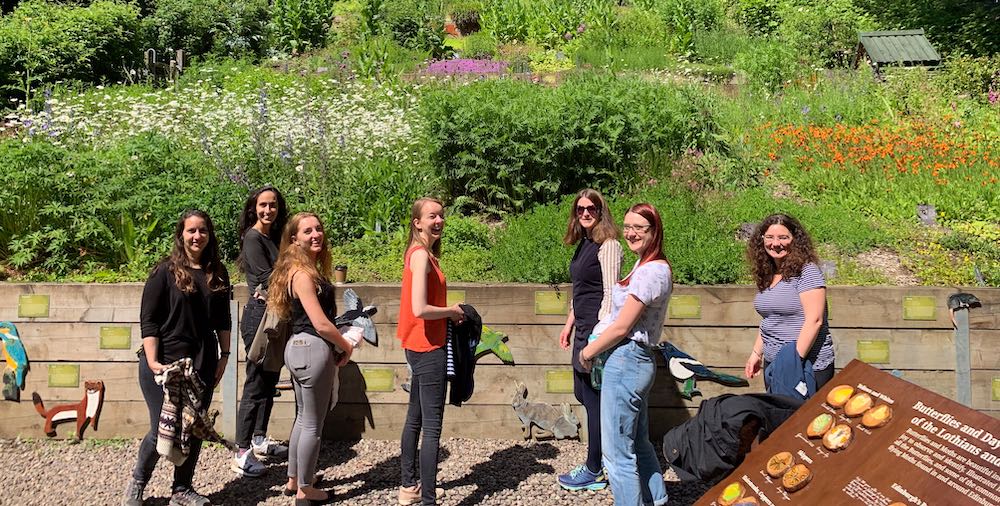
In this post, Emily Harding, a MSc student studying Psychology of Mental Health in the School of Health and Social Sciences, reflects on a recent research writing retreat for students and staff…
Earlier this year I received an invitation to join LAACLab. LAACLab is run by Emily Taylor, Senior Lecturer in Clinical Psychology at the School of Health in Social Science. It is for a group of staff and students in clinical psychology who share an interest in research around looked after and accommodated children (children growing up in foster, residential or kinship care). Last month, we took part in a two-day research retreat away from The University of Edinburgh for some much-needed writing time. Taking us away from the usual teaching space, this felt like a type of fieldwork exercise that inspired a different way of thinking and learning about the field of Psychology.
LAACLab meets every two weeks and is different at each session. It is an informal staff-student collaboration which is designed to support research activity by sharing experience, expertise and potential problems. Together we have discussed a variety of potential projects, one of which was our research retreat. Although the group is composed of a range of different people including; MSc, doctoral and PHD students as well as teaching staff we all felt the end of term was a good time to get some writing done.
Our research retreat took place at the Royal College of Nursing in the South of the City. We spent two full days away from our normal University schedules and tried to not check our emails too many times! At the beginning of the day, we chatted with a buddy and set a daily goal that we hoped to achieve. In between writing slots, we could check-in with other members of the group to report on how we were getting on. As LAACLab members have a range of different experiences and perspectives on the field there was always someone to give you good feedback.
The research retreat wasn’t all hard work. We made sure to take regular breaks and did a walk up Blackford Hill each day in the sun. This was followed by cups of tea and home-made baking which helped with the writing process greatly.
On the second day, we decided to set some time aside to discuss career paths. As an MSc student, this was a valuable opportunity to hear about the journey of staff members in getting to where they are today and receive some thoughtful advice. It was interesting to hear about the different ways people can enter academia and particularly work regarding LAAC. Hearing that there isn’t just one way to do so was a reassuring realisation. These conversations are part of building better relationships between staff and students which is just one way that LAACLab has been a great opportunity this year.
Reflecting on the research retreat it seems that there is value in writing individually as part of a group. Over the two days everyone furthered their writing or research with helpful input from others. We all managed to take breaks, socialise and get outdoors which beats writing on your own any day. Dinner together on the second night was the perfect way to celebrate another year of LAACLab and the end of a rewarding couple of days. Since the retreat, one student has been organising weekly group writing sessions open to staff and students.
This retreat was funded by a school InspirED grant, created from IAD funding to support postgraduate student and early career researcher development.


